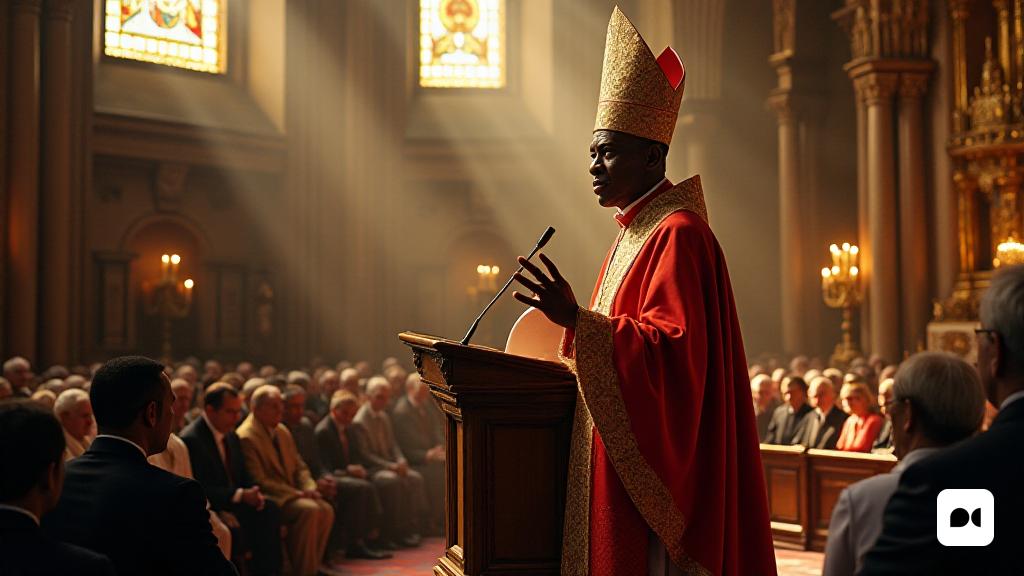Papal succession in a context of tensions
The recent death of Pope Francis has opened an intense debate on who will take his place at the head of the Catholic Church. The internal struggles between progressives and conservatives mark this competition, which is expected to be more marked by politics than ever before.
Robert Sarah: A candidate with a forceful message
Among the names that sound strongly is Robert Sarah, a Cardinal of Guinea who presents himself as a staunch defender of Catholic traditions. His vision on the Church and today’s society is based on a rigorous and orthodox approach.
Critics of Modernity
Sarah has been a firm opposition to the so -called ‘dictatorship of relativism’, denouncing the loss of values in contemporary society. Its stance includes a firm opposition to abortion and a critique of the Western relationship with Islam.
An alert about cultural ‘invasion’
He recently circulated a video in which Sarah expresses his concern for an alleged ‘invasion’ that threatens European identity. According to him, the continent has lost its roots and, like a tree without roots, is at risk of dying.
Identity Loss factors
Cardinal points to low birth rate as one of the main factors that contribute to its vision of a Europe in decline. He also warns of the impact of foreign cultures that, he says, could gradually displace the European population.
THE FUTUR DE LA FE I THE CULTURE
With the figure of Pope Francis, feeling more and more questioned, Sarah’s ideas could be a significant change in the ideological direction of the Church. Its stance contrasts with the multiculturalism promoted by its predecessor, putting the faith as a priority in the face of relativism.
A different ideological course
At a time when the West fights with his own contradictions, Sarah presents himself as a possible leader who could reverse the current trend, focusing on traditional faith and values as the foundations of a society in crisis.
Final reflections
With the rise of figures such as Robert Sarah, the discussion of the future of the Catholic Church and its influence on contemporary society intensifies. His vision of defense of cultural and religious roots could mark a new chapter in the history of the Church, with implications that go beyond the religious world.

